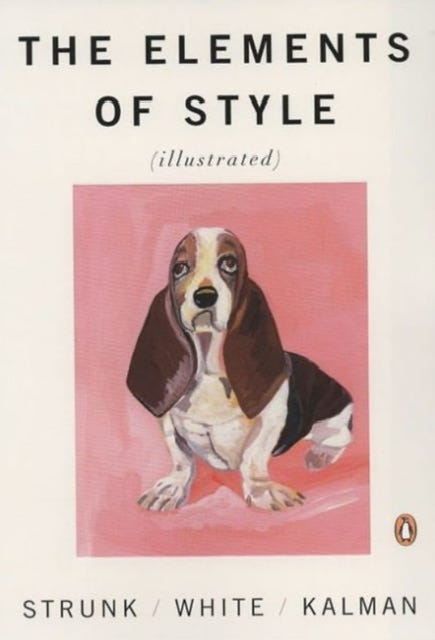Dear Allison,
You’re such a wonderful writer, and I’m always inspired by your unique way with words. I would like to hear your interpretation of whether you believe writing is more of a gift. or a skill that can be taught. How did your writing style change or evolve from the time you started and completed your degree program? Also, when did you first become interested in haiku?
Hi Alice.
Thank you for this question — you send such good ones!
Do I believe being able to write well is more of a gift than a skill — can I just answer yes?
HA!
The honest answer is, you can’t write well without both, in my opinion.
One must possess the gift of observation, first of all. Those who can’t pay attention can’t write very well in a traditional sense. If a writer wants to truly connect with a reader, specificity is paramount — and in order to get those specifics, she must wholly take in her subject — she must wholly take in life, through whatever means she can or is allowed to do.
Other useful gifts for writing are: a sense of and the ability to acknowledge the importance of meter, tempo, tone, and phrasing — an attuned ear will put a writer ahead of the game when it comes to not only first drafts, but every draft thereafter. A background in songwriting is useful for developing prowess over these details (mine has been), but of course, is not in any way necessary and it suddenly occurs to me now that’s something I may lean on too much. I’m just saying having an ear that finds rhythm is quite helpful, because I will also say that a great book, in my opinion, can be deeply read without too much effort — and that has to do with how the words are laid out on the page and how they go into your ear (or your mind’s ear). That’s also structural, which is at least partly skill.
One of the other most important gifts a person can possess when they are desirous of the writing life is patience — you’re probably not going to write well if you try to get it over with as soon as possible — I always tell people who ask me about their writing if they’re having any fun, because when you catch yourself having fun at the keyboard, you know you’re in control of the flow of words instead of the opposite. Patience allows a writer to go into the nooks and crannies and cracks and crevices that can be covered back up later if they need to be. Haste creates tension and a reader can feel it. Sometimes that works for the book. Most times it doesn’t.
But a text has to hang together. That’s where skill comes in.
There are plenty of guides on “how to write,” and there are countless opinions on the subject. I prefer Strunk & White’s The Elements of Style for some essential guardrails regarding grammar, form, style, and use of words. Structure can definitely be taught and though it is ultimately subjective, there are some rules that hold up and allow a book to be cohesive, which, in turn, allows it to be satisfying and clear.

My favorite element - omit needless words - to which I reply, what is needless? Some of my needless words make the whole sentence effective! But it’s one of those things you have to figure out. Taste cannot be taught, however, so that would have to go in the gift column. And always ask someone to read your work after you read it out loud to yourself a few times and preferably at least one time backwards.
I think there are people who are born to write, but that doesn’t mean one has to be born to write to be a good writer. To be great, one has to have plenty of both gifts and skill. That still might not be enough. Being a writer is a lifetime of work that never ends. There will never be mastery. I’ve often thought that once I learn how to write well, I’ll sum it all up in one sentence at the end. It will read:
I tried.
No needless words.
I hope y’all have a fantastic weekend.
PEACE. LOVE.
Allison
Send me a question at allisonmoorercontact@gmail.com
Thank you to my paid subscribers, who allow me to set aside the time I need to do this digital archive. It’s wonderful work, but it truly is work.
Paid subscriber benefits:
Access to the chat on the Substack app
Subscriber Saturdays — exclusive paid subscriber-only posts on Saturdays
Special discounts - every time I put paintings in the shop, paid subscribers will receive a discount code to use for 24 hours.


I just finished listening to “Blood” on Audible and I loved hearing it in your voice in all your pain and anger and joy. But I think now I’m going to buy a paper copy so I can savor the language slowly. It is beautifully written—such resonant details, and I love the way you weave together narrative and associative structures to form a new thing. I taught creative writing for 30 years and I think that you’re right that one needs both a gift and hard work to be the kind of writer you are. To my students, though, I emphasized the hard work part and reading, reading, reading! Only a few had an innate gift, but even parts of that element can be cultivated. You are blessed to be talented in so many areas, but I know you’ve worked hard to use your gifts well. And this fan is grateful for that.
Great insights regarding my question! I agree about both gift and skill being necessary in writing and many other disciplines. Both creativity and cadence are important, but I think certain writing styles just appeal to some and not others. I can’t imagine ever being able to write a whole book, so I’m in awe of you and others who have succeeded in that realm. I have an old copy of that Strunk & White book, but that cover is a clear winner!